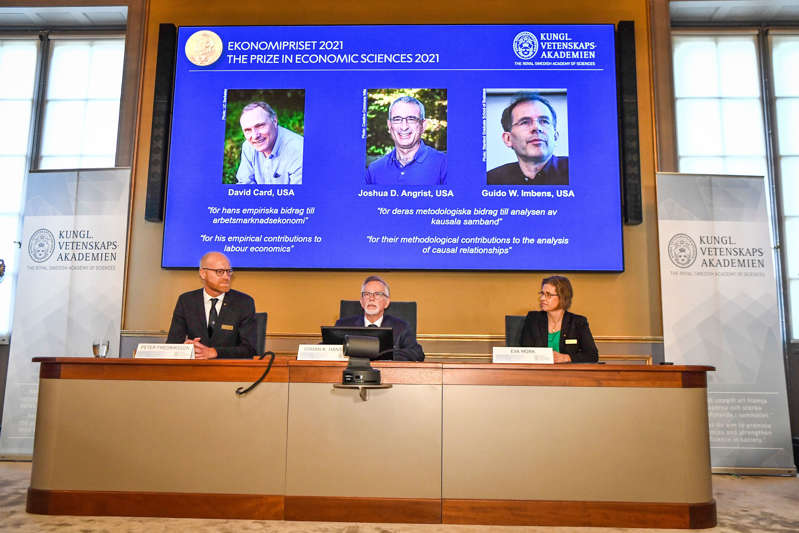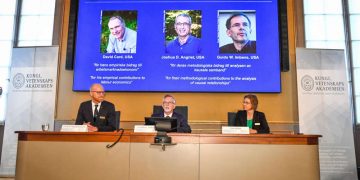Three U.S.-based economists were awarded the Nobel Memorial Prize in Economic Sciences for their work drawing conclusions by observing the cause and effect of real-world economic actions on Monday.
David Card of the University of California at Berkeley, who received one-half of the award, and two other economists, Joshua Angrist of the Massachusetts Institute of Technology and Guido Imbens of Stanford University are the winners of this year’s prize.
Card was honored for his pioneering work in labour economics. Angrist and Imbens were recognized for their methodological contributions to an understanding of causal relationships, the prize committee during their virtual ceremony.
“Card’s studies of core questions for society and Angrist and Imbens’s methodological contributions have shown that natural experiments are a rich source of knowledge. Their research has substantially improved our ability to answer key causal questions, which has been of great benefit to society,” Peter Fredriksson, chair of the Economic Sciences Prize Committee commented
Taken together, the three economists have revolutionized empirical work in the social sciences, the committee said.
David Card is a U.S. and Canadian citizen, while Joshua Angrist has joint Israeli-U.S. citizenship. Guido Imbens is a Dutch and American national.
The announcement of their win comes amid shifts in economic thought on multiple fronts. The global economy is struggling to escape the delta coronavirus variant, leaving economists puzzling over unusual developments in labor markets, supply chains and product pricing.
Last year, Paul Milgrom, a professor of humanities and sciences, and Robert Wilson, an emeritus professor of management at the Stanford Graduate School of Business, were honored for pioneering work in auction theory.
















